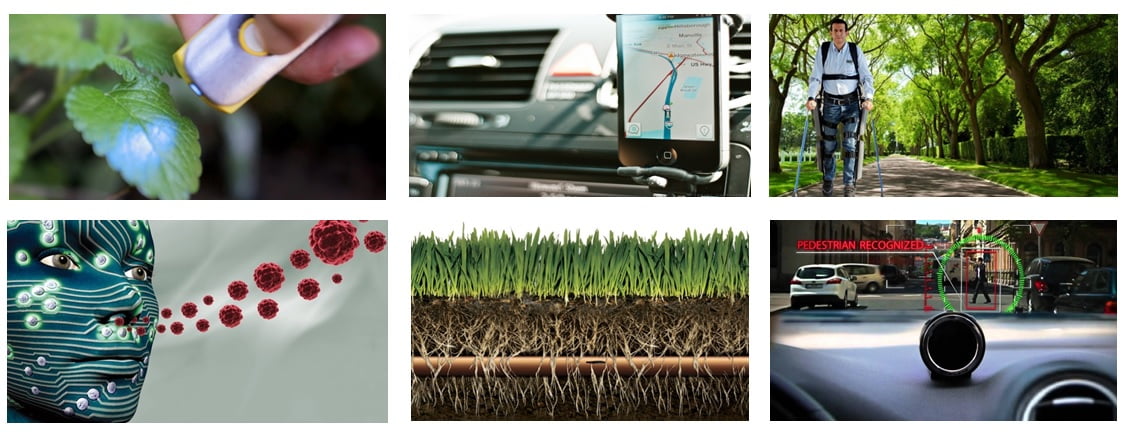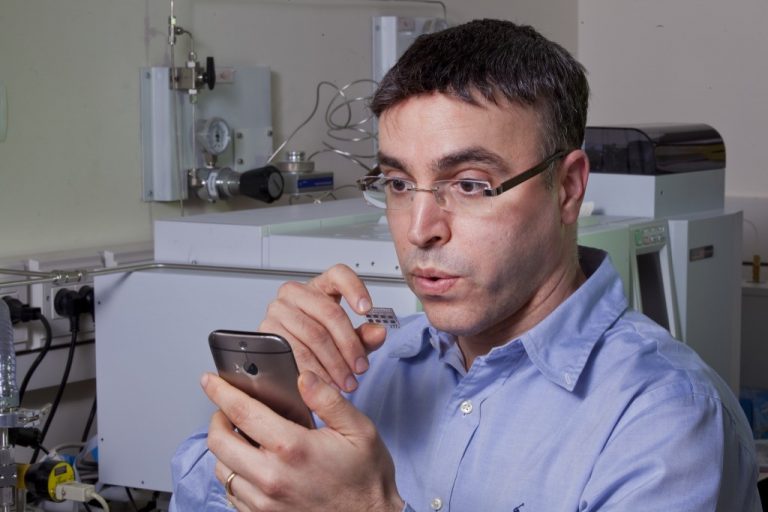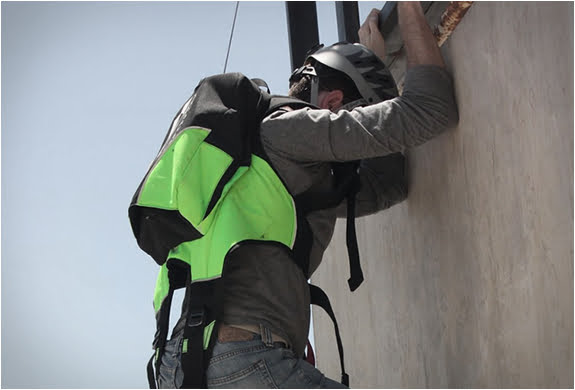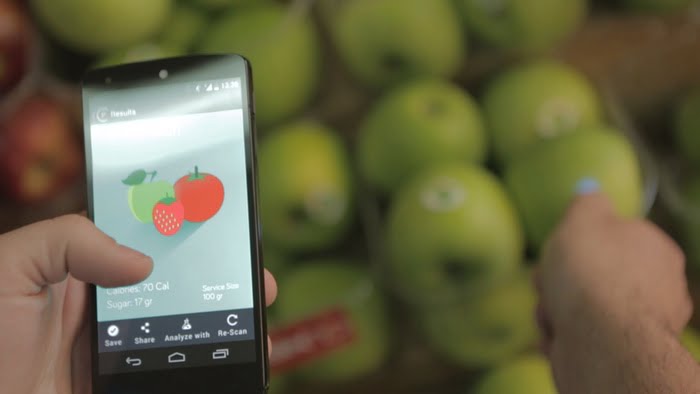As the country with the highest number of startups per capita in the world, Israel has truly earned its nickname, “The Startup Nation”. In just a few decades, thousands of Israeli startups have given rise to innovations in a wide range of fields, from agricultural irrigation and GPS navigation to life-saving cancer treatments.
So which Israeli startups and technologies are truly changing the world? In honor of Israel’s 69th Independence Day, NoCamels highlights twelve Israeli innovations impacting the world for the better and changing lives forever.
Mobileye: Using technology to prevent car accidents
One Israeli company making making major headlines recently is Mobileye, which was just sold to giant chip maker Intel for a whopping $15.3 billion – the largest acquisition deal in Israel’s history, far surpassing Warren Buffett’s $6 billion acquisition of Iscar in 2006.
Mobileye, which develops driver assistance technology to prevent accidents, is also one of the major developers of autonomous car technologies. Its systems use video cameras and advanced algorithms to identify and respond to other vehicles, bends in the road, pedestrians and traffic signs, providing advanced warning for drivers and thereby preventing road accidents. Mobileye has already embedded its technology into cars made by Audi, Tesla Motors and others.
Founded in 1999 by Ziv Aviram and Amnon Shashua, the Hebrew University professor who developed the technology, Mobileye made history twice in the past three years: it went public in 2014, marking the largest Israeli IPO (initial public offering) in the US; and the record acquisition of the company by Intel was announced last month.

Waze: Saving you time on the road
Speaking of driving, no list about life-changing Israeli startups would be complete without mentioning Waze.
Launched in 2008 in Israel, and now owned by Google, this navigation app uses a complex algorithm and the real-time speeds of its users to determine the best driving routes. Waze’s strength is its crowd-sourced reports. It’s stronger in denser areas than in rural ones and has the advantage of using both human and machine knowledge. Waze’s initial mission was simply to save five minutes a day for every motorist, but now it has become a must-have app for any driver.
As the world’s attention focuses on news of self-driving cars, Waze’s innovative technology will certainly play a major role in their development.
UPnRIDE: Helping paraplegics stand tall
If driving is something most of us take for granted, walking is even more so. But in the US alone, there are nearly 250,000 individuals with spinal cord injuries that partially or entirely inhibit regular motor functions. For them, standing and walking around freely remains the stuff of dreams.
UPnRIDE, a revolutionary new Segway-like device that allows quadriplegics to stand up and move around almost anywhere, is poised to change the life of thousands of paralyzed people around the globe.
The Israeli device was developed by Dr. Amit Goffer, who already founded the revolutionary exoskeleton ReWalk, which enables paraplegics to walk and climb stairs. His new device will help quadriplegics (people paralyzed from the neck down) to stand and be mobile.
Goffer, who is himself confined to a wheelchair, has been working on a more comprehensive solution over the past three years. Similar to a stand-up Segway or an electric scooter, the patented UPnRIDE moves over different kinds of terrains with the user’s guidance, using a joystick operated by hand or by mouth. Automatic balancing assures a safe ride uphill, downhill, and on slanted surfaces, in both standing and sitting positions.
“Being able to stand and move is extremely important for people’s physiological health and their dignity,” Goffer says. According to him, the UPnRIDE reduces secondary complications of long-term sitting, lowering the need for hospitalization, medications and physiotherapy.
Prepex: Circumcising millions to cut HIV risk
According to amfAR, The Foundation for AIDS Research, more than two-thirds of all people living with HIV, some 24.7 million in total, live in sub-Saharan Africa. According to the World Health Organization (WHO), one of the benefits of circumcision, the removal of the foreskin of the penis, is a lower risk of HIV transmission. “There is compelling evidence that male circumcision reduces the risk of heterosexually acquired HIV infection in men by approximately 60 percent,” the WHO states.
PrePex, a non-surgical circumcision unit and the first medical device in Israel’s history to be approved by the WHO, allows for the performing of circumcisions on a mass scale, with no incisions, bleeding, or injected anesthesia.
SEE ALSO: Israel’s PrePex Device Will Circumcize Millions To Cut HIV Risk By 60%
PrePex has already been used in more than 250,000 procedures in 13 countries in Africa and Asia. In total, the company has delivered more than 1 million devices which, according to mathematical models, would prevent approximately 150,000 new HIV cases. In addition, there are currently over 1,000 PrePex trained healthcare providers, 16 PrePex training centers and the company is collaborating with more than 45 NGOs on the ground.
“PrePex provides an easier, more convenient and cost-effective way of conducting male circumcision, both for patients and for healthcare providers,” Eddy Horowitz, CEO of Circ MedTech, the developer of PrePex, said in a statement. “With our introduction of the non-surgical device for infants and children, PrePex will improve the male circumcision experience for men, boys and infants worldwide.”
Bonus BioGroup: Lab-Grown Bones Successfully Transplanted In Jaws
Israeli biotech company Bonus BioGroup is growing live bones from patients’ own fat cells. In December, the company reported that it successfully injected its lab-grown, semi-liquid bone graft into the jaws of 11 people in an early stage clinical trial evaluating bone loss repair.
The material, grown in a lab from each patient’s own fat cells, was injected into and filled the voids of the problematic bones. Over a few months it hardened and merged with the existing bone to complete the jaw, the company said.
SEE ALSO: Israeli Company Grows New Bones From Patients’ Fat
The transplant “was 100% successful in all 11 patients,” Ora Burger, the VP of regulation affairs, told Reuters. “Now we are going to conduct a clinical study in the extremities, long bones.”
Bonus BioGroup’s CEO Shai Meretski, who previously founded Pluristem Therapeutics, an advanced Israeli biomedical company that works with stem cells, told Reuters, “For the first time worldwide, reconstruction of deficient or damaged bone tissue is achievable by growing viable human bone graft in a laboratory, and transplanting it back to the patient in a minimally invasive surgery via injection.”
PillCam: The Disposable Capsule That Films Your Gastrointestinal Tract
To screen for colorectal cancer, both men and women over 50 are advised to undergo a colonoscopy every 10 years. Unfortunately, because of the sometimes uncomfortable nature of the procedure, many people choose not to do it.
Given Imaging, an Israeli medical technology company, pioneered a non-invasive method of detecting disorders in the gastrointestinal (GI) tract. PillCam, the aptly named product, is a pill-sized camera ingested by patients, which allows physicians to visualize the esophagus, colon, and areas of the small intestine.
Loyola Medicine gastroenterologist, Dr Mukund Venu, recently told WGN in Chicago that Pillcam, “allows us to get an almost 360 degree view of the colon as the pill tumbles through it.”
“There’s a lot of fear about sedation,” Dr. Venu told WGN, “There’s fear of the procedure itself and the discomfort associated with it. There are about 20 million Americans who are not getting screened for colon cancer, and that’s a number we’d like to see reduced.”
SniffPhone: Detecting deadly diseases on the breath
Speaking of disease detection, two years ago, Prof. Hossam Haick of the Technion-Israel Institute of Technology introduced a device that can sense disease on the breath, much like a breathalyzer test. What Haick calls the SniffPhone uses nanotechnology sensors to analyze the particles on the breath and is able to pinpoint exact diseases, including certain kinds of cancer.
The SniffPhone, Haick’s new mobile device, contains his previously-developed ‘NaNose’ breathalyzer test, which “sniffs out” lung cancer before it spreads. The smartphone device is a vehicle for the NaNose technology that’s mobile and thus can be taken anywhere, including rural areas.
SkySaver: Life-saving technology
In 2015, Israeli startup SkySaver released a brand new emergency backpack that’s designed to help residents escape from high-rises when fire breaks out. This lifesaving kit comes equipped with a cable cord that, in case of an emergency, is attached to a pre-installed anchor located near a window.
When fire breaks out, the emergency device is strapped on with buckles that wrap around the waist and between the legs. Then, the individual starts rappelling down the side of the building.
Founded in 2012 by Eli Gross, Jerusalem-based SkySaver has so far raised an undisclosed amount from private investors.
Reporty: Live-Streaming Emergency Situations From Your Smartphone To First Responders
During an emergency, it’s not always easy to call 911 and explain the dire situation. Now, Israeli startup Reporty provides rescue teams with the precise location and real-time information from your smartphone, including live video.
Reporty is a free app that facilitates the communication between people in emergency situations and public safety agencies, live-streaming video from your smartphone’s camera to the applicable authorities. Once contacted, the dispatcher will also have access to relevant information, including the person’s name, location, needs, and more. Using the power of the crowd, Reporty is revolutionizing the way first response and public safety agencies manage events in the field.
Since its launch, Reporty has raised $8.4M and attracted roughly 100,000 users in recent months. In June, the startup won the Tel Aviv Startup Challenge competition run by StarTAU, Tel Aviv University’s entrepreneurship center.
Reporty was founded by CEO Amir Elichai, Alex Dizengof, Lital Leshem and Yoni Yatsun; its chairman is former Israeli prime minister and defense secretary Ehud Barak, who also invested in the startup; former secretary of the US Department of Homeland Security, Michael Chertoff, is on Reporty’s advisory board.
SCiO: Revolutionizing Our Interaction With The Physical World
Three years ago, a Tel Aviv-based company Consumer Physics shattered all expectations with the launch of its cutting edge pocket spectrometer named SCiO. SCiO is basically a tiny spectrometer, a device that measures the intensity of physical elements. These readings can then be classified into more useful molecular information about the object in front of you, like for example the number of calories, sugar, carbohydrates, proteins in your meal; or the freshness of your apple; or the water levels of your plant.
“This device makes it simple to find out exactly what you are eating or what you’re about to buy. It’ll be as easy as taking a photo, uploading it to your smartphone and sharing it with your friends,” Dror Sharon, co-founder of Consumer Physics said, explaining the potential real-world applications for his product which syncs with a special Apple and Android app that keeps track of what users scan.
Hisense: Saving babies from SIDS
Sudden infant death syndrome (SIDS) is the leading cause of death in infants under one year old with an average death toll reaching 5,600 babies per year in the USA and Europe alone. In 1992, Israeli company Hisense developed the first-to-market non-touch breathing movement monitor for detection of apnea in infants, known under the trade mark Babysense. Since then, the company has gained expertise in developing and producing quality breathing movement monitors, meeting the stringent requirements and needs of both the institutional and private market.
The Babysense breathing movement monitor is used in hundreds of hospitals and have helped protecting over 600,000 infants from SIDS. Hisense is present in 35 countries through its subsidiaries and exclusive international distributors.
SkyTran: A new way to travel
SkyTran, an innovative company with Israeli roots, is promising to change the way people get from place to place. Headquartered at the NASA Ames Research Center near Mountain View, California, SkyTran is developing a patented, high-speed, low-cost, elevated Personal Rapid Transportation (PRT) system. The SkyTran network of computer-controlled, 2-person “jet-like” vehicles employs unique, state-of-the-art, SkyTran Magnetic Levitation (STML) technology. SkyTran moves passengers in a fast, safe, green, and economical manner.
With its NASA relationship, SkyTran has access to a wide range of cutting-edge technologies and capabilities. It is able to combine NASA expertise, assets, and information with its own core competencies.
After years of groundbreaking R&D and perfecting its proprietary technology, SkyTran recently partnered with a leading aerospace company for the construction of a full scale SkyTran Technology Demonstration System (TDS). The TDS will incorporate SkyTran’s salient features and will provide a platform for SkyTran vehicles to travel at high speeds, with full payloads while levitating. The TDS will enable testing, refinement, and validation of SkyTran’s technology in a controlled environment.
So, whether it’s helping paraplegics stand tall, making driving safer or saving lives in Africa, Israelis will continue to innovate to make our world a better place, for the next 69 years – and beyond.
Photos and videos: Prepex, Mobileye, UPnRIDE, Sniffphone, PillCam, Bonus BioGroup, Waze, SkySaver, Reporty, SkyTran, Hisense, SCiO, OurCrowd (featured)






